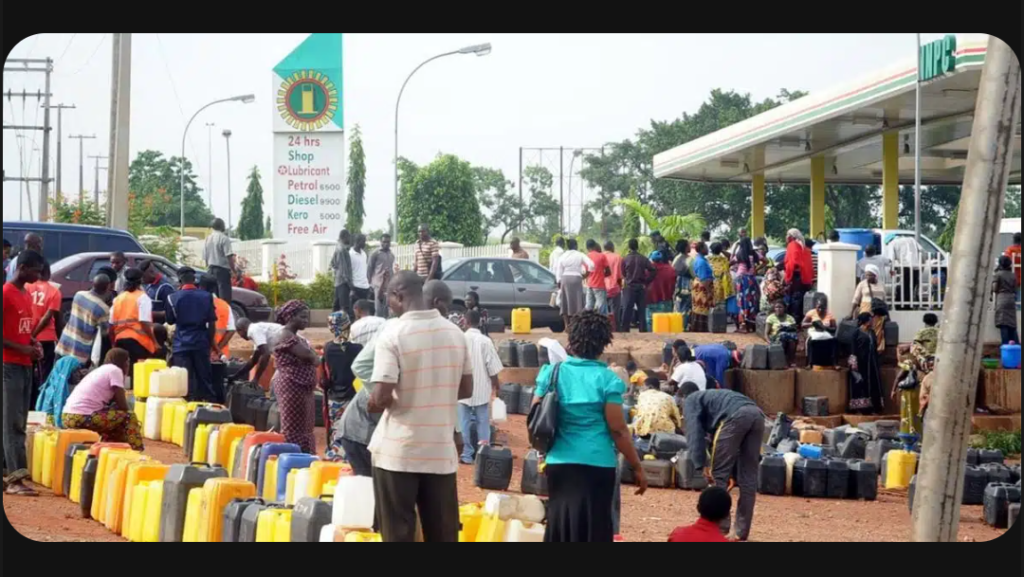News
Deregulation: See price of petrol in Lagos, Kano, Ogun, others
The full deregulation of Nigeria’s petrol sector has led to soaring fuel prices, varying significantly across regions and filling stations, leaving citizens struggling with the escalating costs.

Prices have hit record highs, impacting daily expenses and worsening the cost-of-living crisis. This recent fuel price increase follows the Bola Tinubu administration’s full implementation of the Petroleum Industry Act, ending government subsidies and the Petroleum Equalisation Fund.
Before deregulation, subsidies helped maintain stable fuel prices nationwide, despite regional differences. Since the policy shift, petrol prices have jumped from ₦190 per litre in May 2023 to over ₦1,100 in some areas, representing a 450% increase in under two years.
This surge in fuel prices has also driven up inflation, making basic goods and services unaffordable for many Nigerians. As inflation reaches new heights, citizens report struggling with rising costs of essential items. The country’s dependence on imported petrol, due to non-functional state refineries, has significantly contributed to the rising fuel costs.
Despite hopes that the newly completed 650,000-barrel-per-day Dangote Refinery would bring relief, prices have continued to climb, particularly after the Nigerian National Petroleum Company Limited (NNPCL) withdrew from its exclusive supply agreement with the refinery.
A recent survey of petrol stations by Premium Times found significant price disparities across states, influenced by factors such as distance from supply depots, transportation expenses, and local demand.
For instance, petrol prices in certain northern regions are notably higher than those in the south, adding to regional economic disparities.
For instance, in Nigeria’s commercial capital, Lagos, NNPC retail outlets were selling at ₦998, the lowest price in the country, due to proximity to supply depots. But the same outlets sell at N1,030 per litre in Abuja, the federal capital.
NNPC sold at ₦1,050 in Nasarawa, ₦1,060 in Kano, ₦1,060 in Akwa Ibom, ₦1,025 in Ogun, and ₦1,065 in Enugu.
The average pump price of a litre of petrol in NNPC filling stations in the country was ₦1,038.
In Kano, Total Energy sold at ₦1,130 a litre, but in Uyo, it sold at ₦1,149. However, for A. A. Rano, the pump price was the same in the two cities – ₦1,150 a litre.
It is unclear what is responsible for the parity in A. A Rano pump price despite the geo-political location of both cities.
Rain Oil sold at ₦1,250 a litre in Nasarawa State, ₦1,200 in Uyo and ₦1,100 in Ogun State.
Adrova PLC at Wuse Zone 1 Abuja sold at ₦1,100 per litre, Amasco in Nasarawa State at ₦1,200, and Alhaji Isa, New Nyanya, at ₦1,200.
In Akwa Ibom, AP retail outlets in Uyo were selling at ₦1,145 per litre, while Tran-Sossa and Earthwell outlets sold at ₦1,240 and ₦1,250, respectively, at the time of the survey.
In Lagos State, AP and Mobil sold at ₦1,090 and ₦1,100, respectively, for the same quantity.
In neighbouring Ogun State, the NNPC outlet in Olowotede sold at ₦1,025 a litre. In the same area, other retail outlets, including Rain Oil, sold at ₦1,100 and Rock Oil at ₦1,200.
In Enugu, south-east Nigeria, a Mobil filling station along Zik Avenue was selling at ₦1,200. In contrast, Chritin Petroleum Company, located along Obiagu Road in Enugu, sold at ₦1,220 when a Premium Times visited.
-

 Celebrity Gossip & Gist1 day ago
Celebrity Gossip & Gist1 day ago“The money wey dem pay me don expire” – Moment Burna Boy stops his performance at the Oando PLC end of the year party (Video)
-

 Economy1 day ago
Economy1 day agoGoods worth millions of naira destroyed as fire guts spare parts market in Ibadan
-

 Celebrity Gossip & Gist5 hours ago
Celebrity Gossip & Gist5 hours agoMoment stage collapses on Odumodublvck during concert performance (Video)
-

 Economy4 hours ago
Economy4 hours agoPresident Tinubu cancels Lagos engagements in honor of food stampede victims




